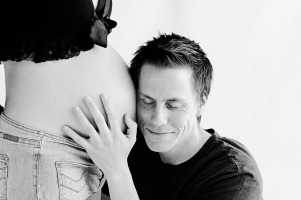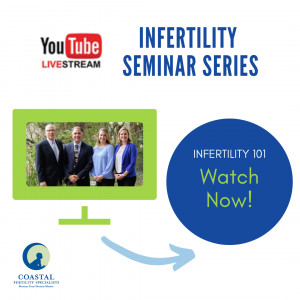When it comes to supplements and vitamins, our physicians cite The American College of Obstetricians and Gynecologists, which suggest women looking to conceive should be taking at least 400 micrograms of folic acid daily to help prevent major birth defects of the fetal brain and spine both before and during pregnancy. They also mention vitamins such as Vitamin C and Vitamin D, as well as “adequate” amounts of Vitamin B-12, as these can help improve outcomes for both mom and child. Our doctors also recommend women take a calcium supplement because calcium helps to maintain the bone density that is lost while a baby develops. Additionally, some women may need more iron during their pregnancy to boost red blood cell production and overall health. Most prenatal vitamins, which can prevent neural tube defects, contain all these important supplements and should be started before conception and continued on through the pregnancy. Other important things you can do before getting pregnant include: maintaining an ideal body weight, cutting back or stopping alcohol usage and stopping smoking.
If you opt for a reproductive check-up before trying to conceive, you can expect the following: an ultrasound to evaluate the ovaries, and a blood test for AMH (anti-Mullerian Hormone) drawn to evaluate ovarian reserve. You may also opt for genetic testing as well, which is easily accessible and can give you answers about many possible genetic defects very quickly.
But what about the men? Yep! It’s important for men to get prepared as well. Men who want or need a fertility checkup can expect a simple semen analysis which will assess the count, the motility, and the morphology (shape) of the sperm and will let a couple know whether there are any issues that needs to be addressed. Those potential issues could include low sperm count as a result of everything from hormones to structural defects to infections or environmental factors. But whatever your partner’s issue might be, the faster you can treat it, the sooner you can focus on the best possible outcome. It’s a little known fact that according to the American Society for Reproductive Medicine, men and women are diagnosed with infertility equally. Which means it’s best for both the man and the woman to get checked out so doctors can address any issues early on.
Physicians say the rule of thumb is a woman should see a fertility doctor if she has been trying for a year and is under age 35, or if she has been trying for six months and is over age 35. Women who have irregular periods, have been diagnosed with Polycystic Ovarian Syndrome (PCOS), endometriosis, fibroids, ovulatory disorders, damage or blockage to the fallopian tubes or have undergone any cancer treatment should see a fertility specialist right away if ready to get pregnant.
For men who have undergone cancer treatment, experienced trauma to the genitals, or are taking certain medications or athletic performance supplements it’s also wise to make an appointment with your doctor or fertility specialist for a semen analysis and medical exam.
Lastly, doctors say it’s important to get in shape before you try to conceive and strive for a normal body mass index. Obesity in both men and women will have negative effects on fertility, and make the pregnancy risky.
If you’re beginning your journey to conception you can take a common sense approach to getting ready. Take your vitamins, eat healthy, drink less and for women, track your menstrual cycles so you can predict ovulation. And if you try for 6-12 months with no success, see a specialist, remember age is a factor in fertility so the sooner you find out the issue the quicker it can be fixed.
Related Posts

January 09, 2020
The Four Biggest Reasons Not to Delay Fertility Treatments

March 21, 2019
Personhood Bills Return to Threaten Our Patients

March 13, 2020
Coastal Patient Shares Her Journey Through Endometriosis and Infertility to Parenthood

March 19, 2020
Why Your Fertility is Safe in Our Hands

January 25, 2021
Infertility 101: All Your Questions Answered



